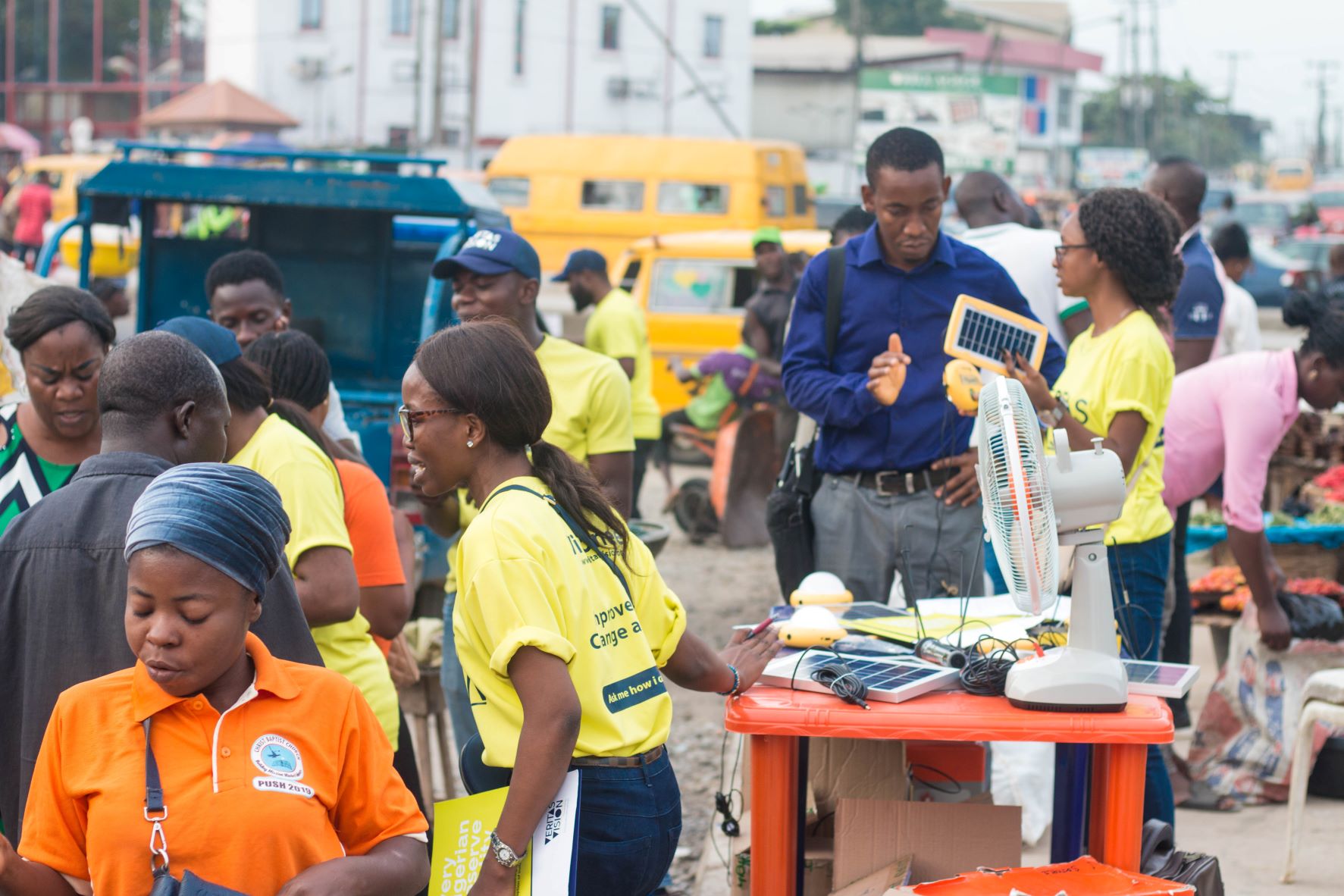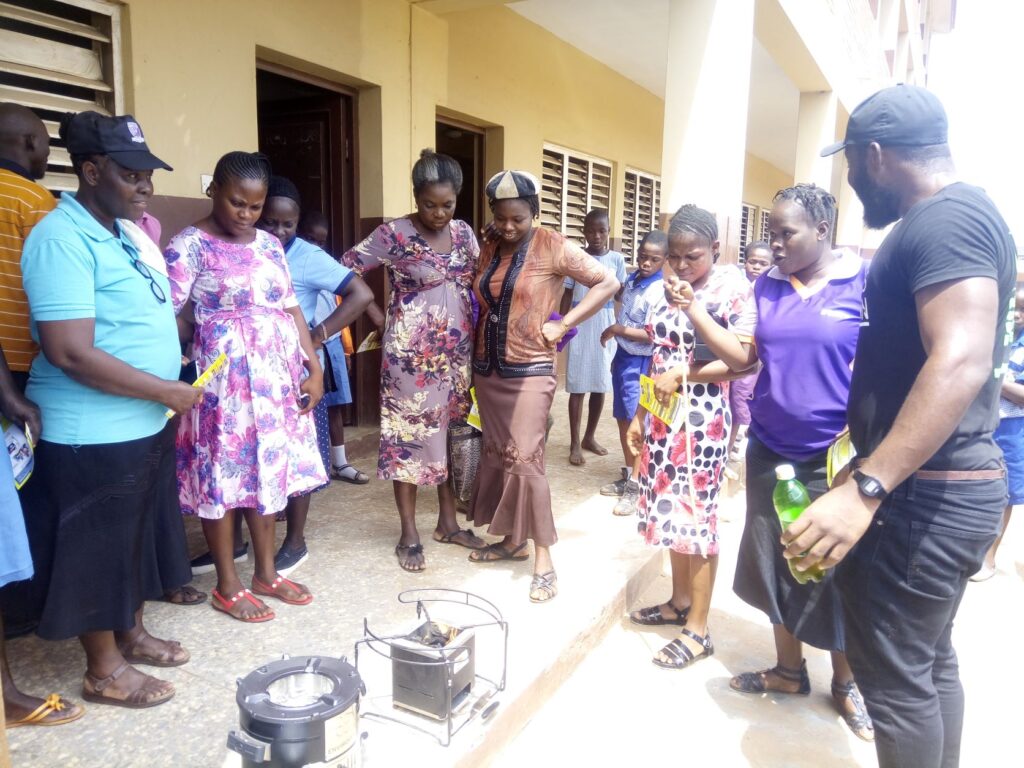GDC member spotlight: Veritas Vision

Veritas Vision was a last mile distributor and GDC member with a mission to distribute beneficial products to last mile consumers in Nigeria. In May 2020, the company shut its doors for good. In its 2+ years of operating – and for the most part with just a few sales agents – the company sold approximately 1,000 beneficial products; impacting circa. 5,000 last mile consumers in Nigeria.
Almost two years after the company’s closure, and with the gift of hindsight, we caught up with Veritas Vision founder and former CEO Oseitofo Amedu to reflect on the pain – and joy – of last mile distribution, pearls of wisdom he’d like to share with other distributors just starting out, and the tips he would give to his younger self…
First things first: looking back at your experience, what top tip would you give to last mile distributors just starting out?
Don’t try to do too much too soon! Originally we intended only to sell eyeglasses, and picked one market to run a pilot in – a peri-urban area on the outskirts of Lagos. Early on, we realised that selling only health-related products like eyeglasses was going to be tough, due to the regulations involved. We broadened our offering to include off-grid solar products and biomass cookstoves; but this confused consumers, who were not yet familiar with us and needed a clearer value proposition. So, we took a more streamlined approach: agents marketed only one product at a time, targeting different consumer segments with different products. For instance, we targeted women in a particular age bracket with biomass cookstoves, because we knew they enjoyed grilling fish and other food at home. Market segmentation is essential in last mile distribution. While it’s tempting to try and sell everything to everybody, identifying small target markets where you can quickly gain traction is the way to go; especially during the early days when you are unknown and have limited resources.

Veritas Vision team demonstrating cookstoves to a group of potential customers
In Veritas Vision’s lifespan, you worked with different suppliers across sectors. What did you learn?
When making decisions about suppliers, take the time to understand their culture and mission, and ensure it aligns with your own values. Check out the product quality and the after-sales support that manufacturers provide. Make sure they understand your company and the market you’re working in. Having a strong relationship with your supplier can be even more vital than product pricing. For instance, when we approached our first supplier they wanted us to place a starting order of N500,000 Naira (~$US2,000 then), which was totally unrealistic given we were at such an early stage – so we went elsewhere.
Even when you find a supplier whose values and mission align with your own, your customer still comes first: if the product quality slips, you need to rethink. The relationship with our second supplier was very good and they ‘got us’; they supported our pop-up community product demos with marketing materials, supplied us with tables and chairs, and so on. But a change in their product left our customers dissatisfied. Essentially, the new product was a better light but, to avoid paying extra customs duties on a larger solar panel, the supplier used a smaller panel which was too small to charge the light adequately. Our customers’ satisfaction came first and so, despite a positive experience overall with that particular supplier, we had to re-evaluate.
And to suppliers in general I’d say: be realistic about the last mile distribution companies you work with and their target customers. Are your minimum order quantities (MOQs) appropriate for last mile distributors? Are your product price-points accessible for last mile consumers? Can you consider yourself a social- or impact-driven enterprise if you’re not truly willing to support early-stage companies working in particularly remote, low-income areas?

A Veritas Vision sales agent engaging with women at a community pop-up event
What about stakeholders, beside suppliers, interested in last mile distribution – how can they support the sector?
Firstly, by gathering and streamlining data to enable last mile distributors to make better, informed business decisions. The ecosystem is very fragmented – there is a huge amount of knowledge and data but it is not captured or shared in useful ways. Centralising some key, community-level data would be a huge help for last mile distributors. When we started Veritas Vision we really needed information about potential demand for our product, and to map out possible customer segments. In markets like Nigeria, you can’t just go online and find the data that you need. For example, there was no centralised list of all the schools in the local area that we were serving, so we had to physically go and find these schools ourselves. How many other companies had done the same before us? While the data itself was critical for our business, and could be equally useful for other companies coming into the same market with another product, it was a huge undertaking to gather this information ‘on the ground’ – which would have been lessened had that information already been documented in an accessible way.
Secondly, stakeholders need to do more to help last mile distributors find human capital and build their capacity. I tended to hire graduates because they were cheaper, but this required a significant time investment to build their sector-specific knowledge and skills. The solar market in Nigeria is hard – customers don’t always know about or trust off-grid products – so a knowledgeable and professional team is vital to securing customer buy-in and selling products. Providing recruitment support and subsidisation to distributors would be a massive help in tackling this challenge, so they can focus their energy elsewhere.
We often think of last mile distribution in terms of products and logistics, but what about the people driving the sector?
One of my biggest takeaways from my experience at Veritas Vision is to invest in relationships with both customers and staff. We spent time getting to know and building connections with head teachers (our main target market was secondary school teachers), to give us easy and frequent access to schools. We also recruited teachers to become sales agents, embedding them within the target market itself.
When it came to our customer relationships, we took the time to listen to (and act on!) their feedback, and invested heavily in creating awareness, post-sale customer services and relationship building for PAYG collection – resulting in just a 1.8% default rate. But this people-first approach also ate into our margins. The reality is that sales agents often put in a lot of effort in a tough environment, and the compensation they receive does not always reflect this; particularly when you are first starting out. It was important to me that our company culture was transparent, inclusive, and bottom-up, so I found non-financial ways to support my team: for instance, making my sales agents smoothies when they returned to the office from a sales push in the scorching sun. Personal touches like this can go a long way in reducing agent churn, which in this sector can be significant. We didn’t lose any staff in the first year of operating, and I’m confident that our company culture played a big part in this.

Veritas Vision sales agents, or “Visioneers”
Lastly, what do you wish you could have told yourself five years ago, to help prepare for what lay ahead?
Build a clear fundraising plan, and make sure you understand your unit economics: The margins for companies in this sector are razor-thin, which is why so many distributors rely on grants to survive. But writing grant applications is time-consuming and overwhelming; and this process can disadvantage non-Western-founded companies for a range of reasons – from funders’ unconscious bias to their preference to fund only certain companies or countries. In hindsight, I would have ensured I had a proper fundraising plan in place and had more proactive oversight of my company’s day-to-day financial health. I learned a lot by doing (and received my unofficial MBA along the way!), but it was painful at times.
Don’t underestimate the power of building a brand: Nowadays, strategic social media marketing and visual storytelling are what set successful companies apart. I was so focussed on getting my business up-and-running that I neglected to recognise how important this channel was to building a company’s brand profile (and attracting customers and funders). What good is a great product if no one knows about it?!
And finally, don’t go it alone: social entrepreneurship can be lonely, and I wish I’d had a co-founder at the outset with similar, impact-driven values, who could have shared the experience with me. Having said that, my employees were incredibly dedicated and built genuine, long-lasting connections with customers – Veritas Vision would not have achieved the impact we did without having a great team.
The GDC member spotlight series is supported by GET.invest, a European programme which aims to mobilise investment in decentralised renewable energy, supported by the European Union, Germany, Sweden, the Netherlands and Austria.
Photo credits: Damilola Salami
